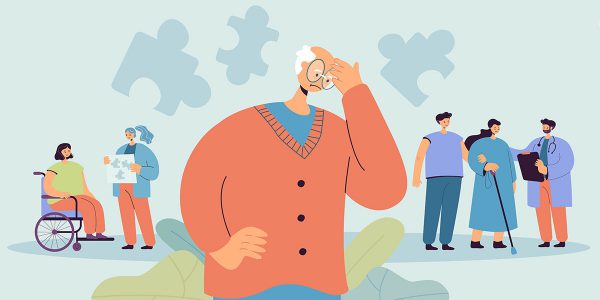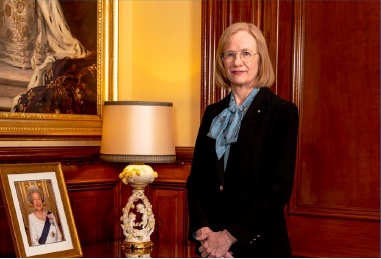Singing and dementia: How the sound of music helps people with dementia
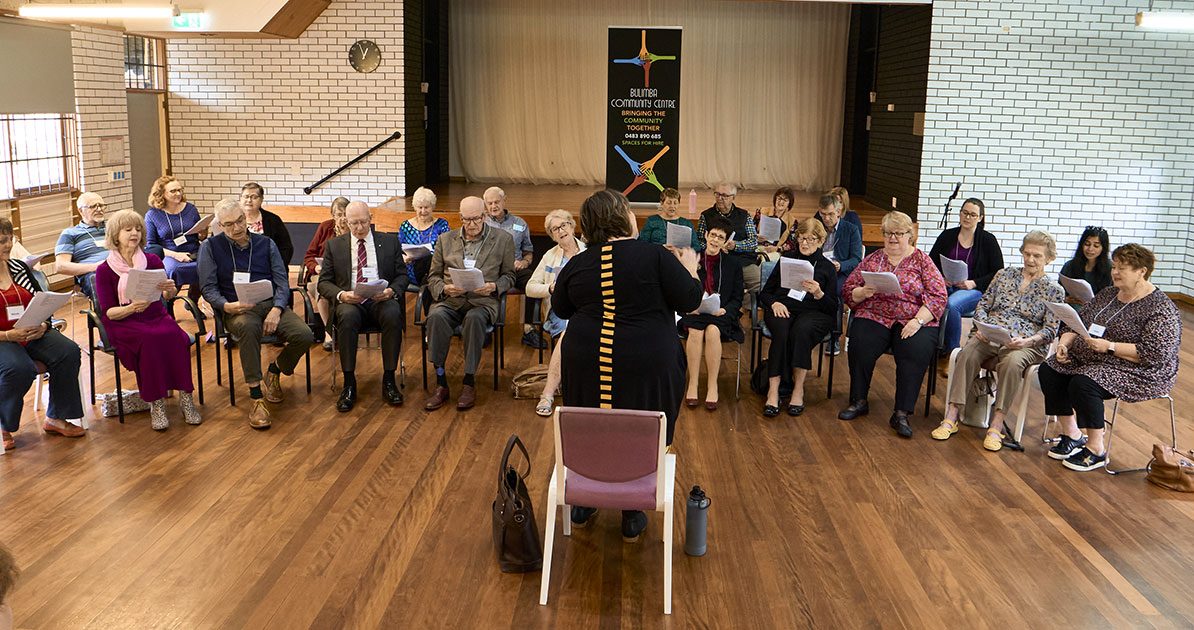
“First of all, we need to be very clear up front,” Melissa Gill states as we start the interview.
“Sing Sing Sing is not a dementia choir. It is a working choir that welcomes those living with dementia and their care partner, who can benefit from and contribute to practices and performances.”
The distinction needs to be made. While the choir was established to support and benefit those with dementia, it is crucial to recognise the value that care partners and others bring to the choir and the benefit they get from participation.
A roundabout path to find true passion
Melissa Gill didn’t set out to be a choirmaster. It was the premature ending of one career that led her on a path that has seen her Sing Studio develop several community choirs, including Sing Sing Sing.
The latest of her programs, Sing Sing Sing, sprang from a deep desire and need to deal with her personal connection to dementia and only eventuated after a circuitous route from her childhood passions.
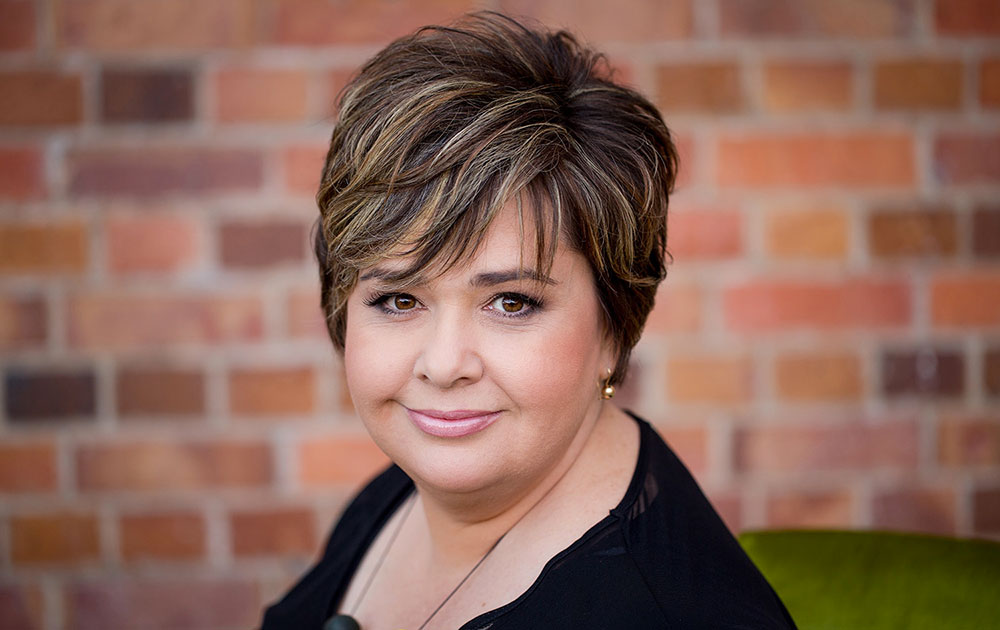
Sing Sing Sing is a result of Melissa Gill’s passion for singing and for spreading the benefits singing can bring to people
“I was a musician all the way through primary school and high school. I played instruments. l sang at church, and I sang in school choirs. But it was never really the main thing that I did,” Melissa explains.
“It wasn’t until I left high school when my mom was playing for a local community choir I decided to go along and sing with this lovely bunch of octogenarians who were making the music every week.”
“A couple of people said to me, ‘Oh, wow, you’ve got a great voice. You should have singing lessons,'” Melissa continued.
“Well, I had a little spare cash, so I decided to have singing lessons. And in the first lesson, my teacher said, ‘You’ve got what it takes to go all the way if that’s what you really want.'”
But, while Melissa pursued singing after high school, funding her passion with a job as a dental assistant and even doing a jazz degree at the Queensland University of Technology, singing wasn’t paying the bills.
“I got a job and ended up having a career as an HR consultant in government for 15 years… and I stopped singing,” she explains.
Every cloud has a silver lining
“I was still in my HR career and realised how much I missed singing. I joined a choir which started the ball rolling for me singing again,” Melissa says.
And then the Newman state government redundancies hit.
“After becoming redundant, I set up two businesses: an HR consultancy and a music business, but I found it hard to work across both businesses, so I decided to go all in 10 years ago on the singing business.”
It was the right choice for Melissa as she now has a respectable resumé listing boasting numerous soloist and lead singer roles for various choirs and events.
Even with her personal success, it was her involvement in the community, including organisations like Upbeats Arts, a group delivering arts programs for people living with chronic mental health conditions, that she valued most.
“It’s been life-changing for me to watch other people’s lives change through singing,” she says.
A change for the better
It was another life-changing experience that saw her establish Brisbane’s first choir dedicated to those living with dementia.
“it was three things at once that put me on this path,” Melissa explains.
“I came across a book by an academic in the UK about starting a choir for people with dementia. At the same time, I saw a documentary called My Dementia choir on the BBC about a choir they set up in Nottingham,”
The final impetus for starting the choir was the most personal one. Melissa’s own father was battling dementia.
“I needed to do something for my parents, and I knew that I had to commit to it if I started this. Coincidentally, I was finishing my Masters of Voice Teaching and had to complete a practical project. There was no question then.”
In 2020 Melissa started what she now calls a choir pilot.
“We then had the Christmas break, and the plan was to restart at the beginning of the year. But by that stage, my father had deteriorated and needed to go into care. That has been really difficult for our family,” Melissa recalls.
Complicating matters was the issue of funding. The initial cost of establishing the choir had been footed by Melissa herself, and she didn’t have the funding to continue.
“But then mid-year, a friend of mine who runs the Bulimba Community Center came to me and said, ‘Look, I think we need to do this again,'” Melissa says.
“She wanted to partner with my business to get it up and running. We brought somebody in to handle all the paperwork and the administration and we’ve got this beautiful partnership with the Center going which helps the choir amazingly.”
“Their partnership is absolutely essential to the success of Sing Sing Sing, and we wouldn’t be running without them. They are a completely unique entity, totally self-funded and volunteer-run. And they really focus on bringing the community together. They have also just been made an official Dementia Australia ‘dementia friendly organisation’, which is awesome”, Melissa states.
An “overnight” success
“We now have about ten couples, so ten people with the disease and their partner, husband, wife, grandson attending with them. We have about another 10 to 12 buddies on top of that.”
“Our model for the choir is the same as the choir in Canberra, called The Alchemy Chorus – which I think is really the first dementia choir in Australia – and the mental health choir I work with. We incorporate ‘buddies’ as well.”
Buddies are people from the community that volunteer to help facilitate the program. They provide musical and personal support for our people in the room with dementia and their partner.
It’s a massive growth from the original three people who were part of the pilot program, which is also reflected in the community’s interest.
In the 11 or so weeks since the program started again, Melissa has had outreach and interviews with organisations such as Brisbane City Councillor Cara Cook, Hammond Care, Studio 10, 4KQ, Dementia Australia and the Queensland Brain Institute.
Three weeks ago, the Governor General and his wife came and sang with the choir.
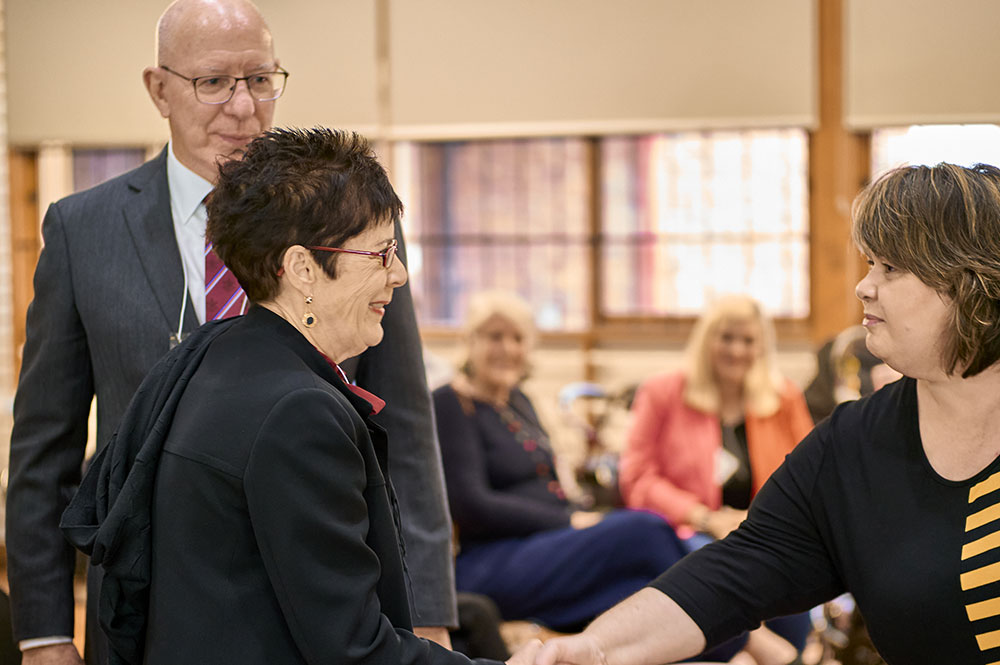
His Excellency General the Honourable David John Hurley AC DSC (Retd) and his wife Linda Hurley has joined Sing Sing Sing for a practice, highlighting the importance this initiative
“We’ve had the most extraordinary experience, and I’ve never seen it in any choir I’ve ever run before,” Melissa exclaims.
Griffith University and the University of Queensland are also commencing research to document the program’s benefits to participants.
Choir members’ experiences
Melissa has observed a range of experiences and benefits for her participants, but watching her father and mother shows her the value her program brings.
“My own father would forget from week to week that choir was a thing that we would do, and my experience of people who have dementia is that some days are good days and some days bad days, and you never really know when the day begins whether it’s going to be a good day or a bad day.”
“Some days, there would be a conflict between him and my mother, and he didn’t want to go anywhere, or some days he was just exhausted, and it wasn’t going to work for him that day.”
“But for my mother, Tuesday is her best day of the week. She continues to come and volunteer as a buddy, but Tuesday was the best day of the week. Her life had become so small because of my dad’s illness, and she was quite depressed, which is not uncommon. It is a really tough gig for carers.”
“It just gave her something to look forward to, and on most days, it gave them something enjoyable to do together. My father didn’t always engage, and he wasn’t always easy to manage, but she will tell you that he’s become much more vocal musically in his aged care home. He will start to dance and sing if there’s any music going.”
Then there’s Harry*. Harry will tell you that it’s the best thing he does all week. Harry comes to the choir on his own because he’s pretty young.
He had to retire as a result of his particular kind of dementia. The rest of his family and his friends were still gainfully employed, and he felt very isolated due to his condition.
It was his psychologist in the local area who heard about the choir and said, “You need to go.”
“We were concerned about how he would fit because he’s so much younger and in many ways so much more capable,” Melissa explains.
“But he has really taken to it, and he will tell you that it’s the best thing he does all week.”
“Then we have Michael* and Denise*, who are husband and wife. She lives in a nursing home. She is a lovely lady, but some days she won’t even realise that she’d been singing 10 minutes ago,” Melissa says.
“Michael came under sufferance. He lives on his own. He picks her up at the nursing home and brings her. He really didn’t want to participate the first week.”
“We’ve seen a transformation in their relationship. Michael sits there and holds her hand, and he’s gone from not singing to singing. It’s definitely better for him, but there’s also a much closer connection with his wife.”
“Denise was having surgery last week, and he came on his own.”
Can music and singing really help someone with dementia?
While Melissa’s observations are heartening and the research being done by Griffith and UQ valuable, what does current research tell us about the benefits of singing to those with dementia?
The renowned Mayo Clinic outlines several ways music can help people with Alzheimer’s, the leading cause of dementia. Music can:
- Relieve stress
- Reduce anxiety and depression
- Reduce agitation
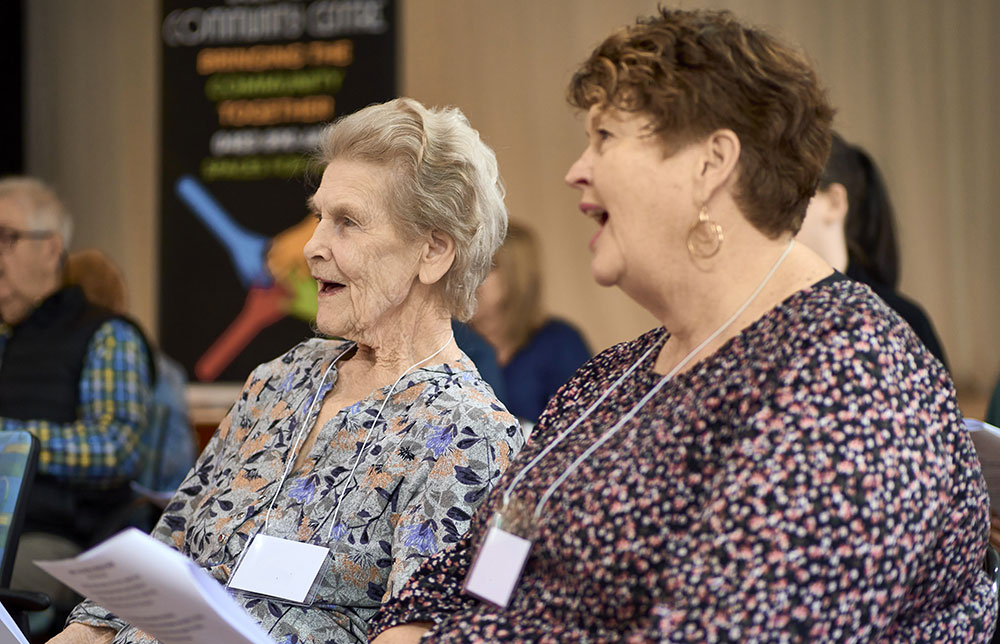
Music is increasingly lauded as one of the best ways to reach a person at all stages of dementia
They also highlight that these benefits are not just limited to people with Alzheimer’s but also their caregivers and provide a way to connect with those who suffer from the illness.
Research has shown that two of the last remaining cognitive abilities in patients with dementia are musical aptitude and appreciation, with musical memory also shown to survive well.
Music is also increasingly lauded as one of the best ways to reach a person at all stages of dementia.
It has been shown that when songs from a person’s past were played, very specific brain areas were activated. These areas of the brain seemed particularly resistant to the damaging effects of Alzheimer’s.
This connection with memories of old songs led renowned neurologist Oliver Sacks to state: “Music imprints itself on the brain deeper than any other human experience. Music evokes emotion, and emotion can bring with it memory… it brings back the feeling of life when nothing else can.”
While it has been shown that music can help connect with people experiencing dementia symptoms, research from 2013 showed that singing in group music sessions can significantly improve the cognitive abilities of those with dementia – even in the later stages.
Researchers in the US spent four months studying the effects of songs from well-known musicals such as The Sound of Music, Oklahoma, The Wizard of Oz and Pinocchio have on people with dementia. Group singing exercises were held for those with moderate to severe conditions. Of those who participated, not all chose to sing, but all undertook a cognitive test before the experiment.
At the end of the four months, the participants undertook another cognitive test which showed that those who sang experienced a more significant increase in mental facets, including cognitive function, leading to greater life satisfaction.
This has since been backed up by further research, including a 2015 study that showed that an active singing program, using an innovative approach, led to significant improvement in cognitive ability in individuals with dementia.
In 2021, staff and researchers at the Faculty of Fine Arts and Music at the University of Melbourne carried out a major systematic review of research into singing and how it can benefit people with dementia and their caregivers.
The team reviewed over 1,800 studies, of which 40 met the research team’s criteria for further analysis.
The team were trying to answer three questions:
- What outcomes have been measured in the existing literature?
- What does the existing literature say about the effectiveness of singing for these outcomes?
- How do participants describe the experience of being involved in singing interventions/programs?
At the end of their analysis, the research team were cautious in stating that it was difficult to draw conclusions based on quantitative data alone. They noted that qualitative data provided further context and insights. When integrated with quantitative data, contextual factors that may influence the benefits that participants experience from singing are revealed, showing that singing can positively impact the lives of people with dementia and their caregivers.
May the chorus grow
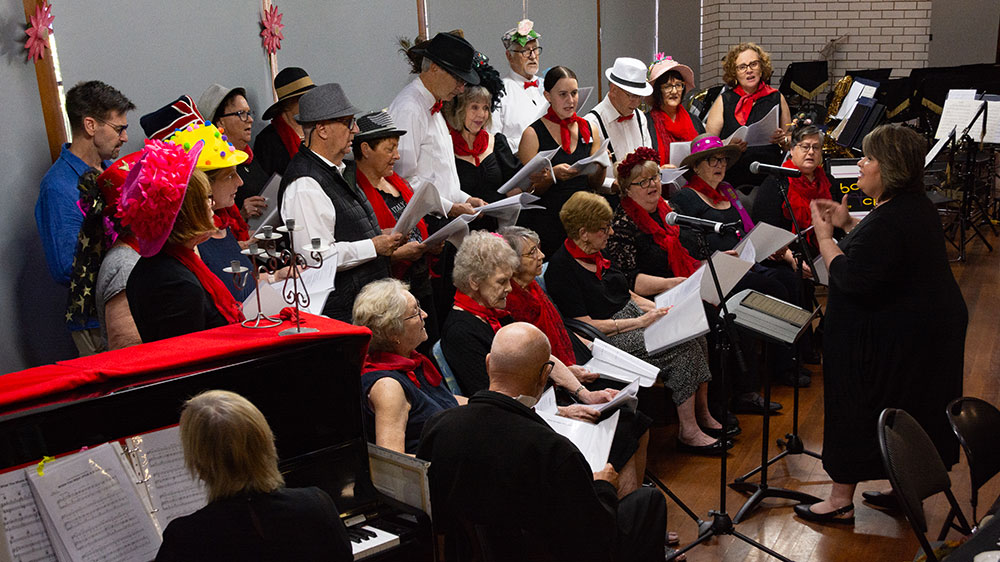
Sing Sing Sing is a working choir with several public performances under their belt
With an increasing population experiencing dementia, studies have shown that singing programs can help improve the quality of life of these people at all stages of their life.
Melissa Gill’s Sing Sing Sing initiative, while still in its early stages, is already proving to be immensely valuable to the people who participate.
While it is one of the first in Australia, we here at BHA hope it is not the last.
*Names of choir participants have been changed for this article.


